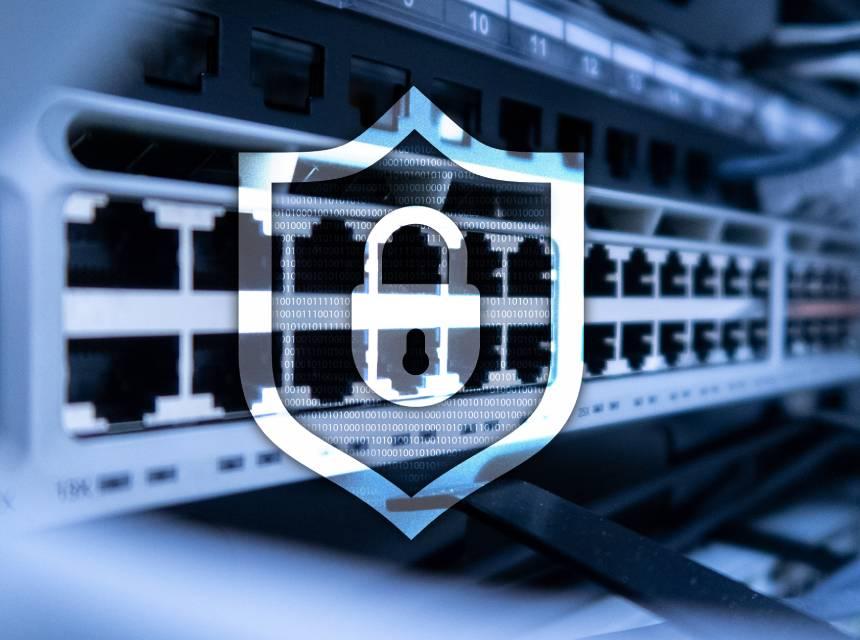Effective Data Protection Strategies Against Cyber Attacks for PCI DSS-Compliant Companies
Data security has never been more important, especially for businesses that handle sensitive payment information. For companies that must comply with the Payment Card Industry Data Security Standard (PCI DSS), ensuring the protection of payment card data is not just a regulatory requirement—it's a fundamental business imperative.
PCI DSS sets forth a stringent set of security measures that businesses must adhere to in order to protect customer payment data from cyber threats. With the rise in cyber-attacks and data breaches, companies that fail to safeguard sensitive data not only face financial penalties but also risk damaging their reputation and customer trust. This blog will explore the most effective data protection strategies that PCI DSS-compliant companies can implement to defend against cyber threats.
Overview of Current Cyber Threats and Attack Types
As technology evolves, so do cyber threats. Today, businesses—particularly those handling sensitive payment data—are constantly under threat from sophisticated cybercriminals. Below are some of the most prevalent and damaging types of cyber-attacks:
- Ransomware: A malicious software that locks data or systems, demanding payment (typically cryptocurrency) for its release. Ransomware attacks have increased in frequency and severity, often targeting businesses that fail to maintain strong security practices.
- Phishing: A type of attack where cybercriminals impersonate legitimate businesses or contacts to steal sensitive information, such as login credentials. Phishing emails are a common entry point for attackers seeking to exploit weak points in an organization’s security.
- SQL Injection: Attackers exploit vulnerabilities in web applications by injecting malicious SQL code into input fields. This allows attackers to gain unauthorized access to databases, often exposing sensitive information such as payment details.
- Man-in-the-Middle (MitM) Attacks: In MitM attacks, cybercriminals intercept and alter communication between two parties. In the context of payment systems, this could mean intercepting sensitive payment card data as it is transmitted over the network.
- Distributed Denial-of-Service (DDoS) Attacks: These attacks overwhelm a server or network with a flood of internet traffic, causing service disruptions and downtime. While not directly focused on data theft, DDoS attacks can create vulnerabilities that cybercriminals can later exploit.
Given the variety of these threats, it is imperative that PCI DSS-compliant companies implement robust data protection strategies to mitigate the risk of cyber-attacks.
Key Data Protection Methods Aligned with PCI DSS Requirements
PCI DSS outlines several specific data protection measures that businesses must implement to ensure the security of payment card data. Below are some key methods:
Encryption
Encryption is the cornerstone of data protection. According to PCI DSS, sensitive payment card information must be encrypted both in transit (when it's being transferred over networks) and at rest (when it's stored in databases). This ensures that even if attackers manage to intercept or access the data, they won’t be able to read it without the decryption key.
- End-to-End Encryption (E2EE) is particularly important, where payment information is encrypted at the point of entry and remains encrypted until it reaches its intended destination.
Access Control
PCI DSS requires that access to payment card data be restricted to authorized individuals only. This can be achieved through strict access control mechanisms such as:
- Role-based access control (RBAC): Assigning roles and permissions to employees based on their job responsibilities.
- Multi-factor authentication (MFA): Requiring more than one form of identification (e.g., a password and a fingerprint) to gain access to sensitive systems.
Tokenization
Tokenization involves replacing sensitive payment card data with a randomly generated token that has no value outside of the specific system or environment where it’s used. This reduces the risk of data exposure, as the token cannot be used to access the original data.
Regular Audits and Vulnerability Assessments
Regular audits, vulnerability scans, and penetration testing are critical components of a PCI DSS-compliant security program. These practices ensure that businesses are proactively identifying and addressing potential security gaps before they can be exploited by cybercriminals.

Best Practices for Preventing Data Breaches with PCI DSS Compliance
To safeguard sensitive payment card data effectively, PCI DSS-compliant companies must adhere to a set of best practices that go beyond the minimum requirements.
Employee Training and Awareness
Cybersecurity threats often stem from human error. Providing employees with regular training on data security best practices, how to recognize phishing attempts, and the importance of safeguarding payment card information is crucial. The more informed your staff, the less likely they are to fall victim to social engineering tactics.
Network Security
A robust network security infrastructure is essential for preventing unauthorized access to payment systems. Companies should implement the following measures:
- Firewalls: Properly configured firewalls block unauthorized traffic and safeguard network resources.
- Intrusion Detection Systems (IDS) and Intrusion Prevention Systems (IPS): These systems detect and prevent unauthorized activities in real time, helping to thwart attacks before they can cause harm.
- Virtual Private Networks (VPNs): VPNs ensure secure remote access to company networks, preventing data interception and ensuring privacy.
Data Minimization and Segmentation
Businesses should store and process only the payment data they need. Data minimization reduces the risk of sensitive information being exposed during a breach. Additionally, data segmentation involves separating payment card data from other less sensitive data, limiting access to the most critical systems.
Multi-Factor Authentication (MFA)
Using MFA enhances security by requiring more than just a password to access sensitive data or systems. Even if an attacker obtains login credentials, they cannot access the system without the second factor, which could be a fingerprint, SMS code, or hardware token.
Regular Security Updates and Patching
Keeping software, hardware, and applications up to date is critical to maintaining a secure environment. Vulnerabilities in outdated software can be exploited by attackers to gain access to sensitive data. Regular patching of systems ensures that any known security flaws are fixed promptly.
Ixpanse Teknoloji’s Comprehensive PCI DSS-Compliant Data Security Solutions
At Ixpanse Teknoloji, we understand the critical need for securing payment card data in a PCI DSS-compliant manner. Our data security solutions are designed to help businesses meet and exceed PCI DSS standards while mitigating the risks of cyber threats. Here’s how we can help:
1. PCI DSS-Compliant Encryption and Tokenization Solutions
We implement cutting-edge encryption and tokenization technologies to ensure that payment card data is always protected. Our solutions ensure that sensitive information is securely encrypted both at rest and in transit, minimizing the risk of data breaches.
2. Ongoing Monitoring and Risk Management
Our 24/7 monitoring services detect and respond to potential threats before they can cause significant harm. We continuously assess the security landscape, providing real-time alerts and proactive risk management strategies to keep your data secure.
3. Customized Security Consulting Services
Ixpanse Teknoloji offers tailored consulting services to help businesses design, implement, and maintain robust PCI DSS-compliant data security programs. Our experts will guide you through the complexities of PCI DSS and help you create a sustainable, secure data protection strategy.
4. Vulnerability Scanning and Regular Audits
We offer regular vulnerability scanning and audits to ensure compliance with PCI DSS requirements and address potential weaknesses in your security infrastructure. These services are critical for staying ahead of emerging cyber threats and ensuring your company remains protected.
Securing Payment Card Data in a Threat-Rich Environment
Data protection is paramount for PCI DSS-compliant companies. With cyber threats becoming increasingly sophisticated, businesses must prioritize strong data security practices to safeguard payment card data from breaches and attacks. By implementing key strategies like encryption, tokenization, access control, and multi-factor authentication, companies can effectively mitigate risks.
At Ixpanse Teknoloji, we are committed to helping businesses protect sensitive payment data with our comprehensive PCI DSS-compliant solutions. By partnering with us, companies can ensure that their data protection strategies are robust, effective, and aligned with the latest security standards.




